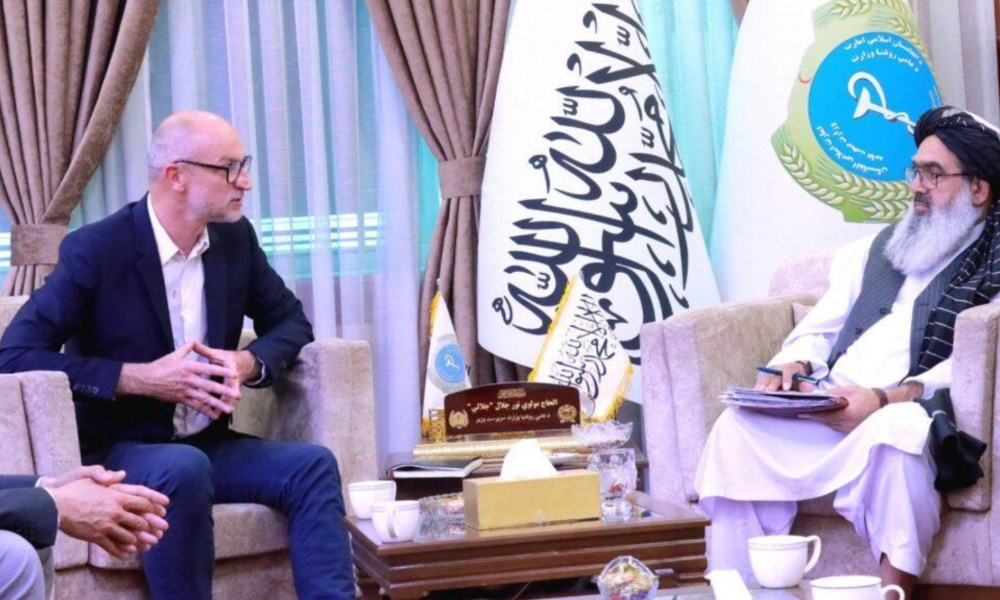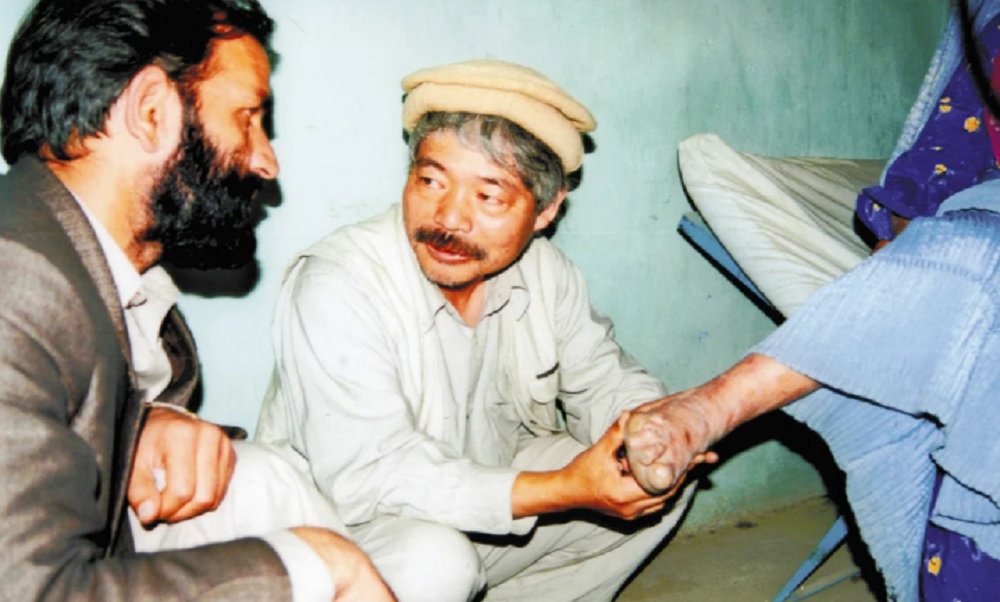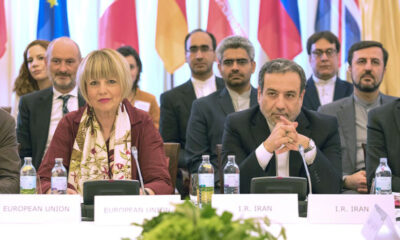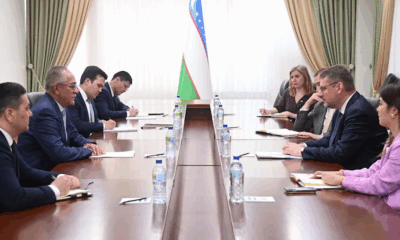Health
UNICEF issues emergency tender to secure mpox vaccines
Depending on the production capacity of manufacturers, agreements for up to 12 million doses through 2025 can be made, according to the statement.

The United Nations Children’s Fund (UNICEF) has issued an emergency tender to secure mpox vaccines for crisis-hit countries in collaboration with the Gavi vaccine alliance, Africa CDC and the World Health Organization, the organizations said in a joint statement on Saturday.
Depending on the production capacity of manufacturers, agreements for up to 12 million doses through 2025 can be made, according to the statement.
Under the tender, UNICEF will set up conditional supply agreements with vaccine manufacturers, the statement said.
This will enable UNICEF to purchase and ship vaccines without delay, once financing, demand, readiness and regulatory requirements are confirmed, Reuters reported.
The collaboration – which would also include working with the Vaccine Alliance and the Pan American Health Organization as well as with Gavi, the Africa Centers for Disease Control and Prevention and WHO – would facilitate donations of vaccines from existing stockpiles in high-income countries.
The statement added that WHO is reviewing information submitted by manufacturers on Aug. 23, and expects to complete a review for an emergency use listing by mid-September.
The agency is reviewing applications for emergency licences for two vaccines made by Bavarian Nordic (BAVA.CO), opens new tab and Japan’s KM Biologics, read the report.
Earlier in August, the WHO declared mpox a global public health emergency following an outbreak of the viral infection in the Democratic Republic of Congo that spread to neighbouring countries.
More than 18,000 suspected cases of mpox have been reported in Congo so far this year with 629 deaths, while over 150 cases have been confirmed in Burundi, WHO Director-General Tedros Adhanom Ghebreyesus said.
Sweden and Thailand have confirmed cases of the clade Ib type of the virus, outside of the Democratic Republic of Congo and neighboring countries.
Health
Head of MSF in Afghanistan meets with Jalali over improving healthcare services
Michael Lippi committed to making efforts aimed at improving the quality of healthcare services and fostering better coordination.

Afghanistan’s Acting Minister of Health Noorjilal Jalali met with the head of Medecins Sans Frontieres (MSF) for Afghanistan, Michael Lippi, for discussions on improving healthcare centers and medical services in the country.
The two officials also discussed enhancing the capacity of healthcare workers, ensuring transparency in services, improving coordination with the Ministry of Public Health, and delivering effective and sustainable healthcare services.
Jalali emphasized the importance of increasing and expanding the organization’s support for the health sector and called for further development of services.
He stressed the need to enhance the capacity, quality, effectiveness, and transparency of healthcare workers.
Michael Lippi also emphasized the need for further improvements in health services in Afghanistan and the expansion of this sector.
He committed to efforts aimed at improving the quality of healthcare services and fostering better coordination. He specifically addressed the continuation of services in the provinces of Herat, Kunduz, and Helmand, confirming that these centers will continue their operations in collaboration with the Ministry of Public Health.
Meanwhile, Mohammad Naeem, the Deputy Minister for Finance and Administration at the Ministry of Foreign Affairs of the Interim Government, held a separate meeting with
Michael Lippi to discuss the expansion of healthcare services and the provision of necessary facilities for returning migrants.
According to the Ministry of Foreign Affairs, Lippi reassured government that MSF’s efforts to improve maternal and child health and enhance the capacity of healthcare personnel will continue.
Health
Japanese charity Peshawar-Kai to resume leprosy treatment in Afghanistan

Peshawar-Kai, a Japanese aid organization, has announced that it will resume leprosy treatment in Afghanistan after around 15 years.
The charity will treat leprosy patients in memory of its former head Tetsu Nakamura, Japan’s Yomiuri Shimbun newspaper reported.
The NGO will begin its leprosy treatment program in Afghanistan this year.
It will treat patients in areas such as Nangarhar province by providing medicines, training staff and sending mobile treatment teams.
Leprosy, also known as Hansen disease, is a chronic infectious disease caused mainly by a type of bacteria called Mycobacterium leprae. The disease affects the skin, the peripheral nerves, the mucosa of the upper respiratory tract and the eyes.
Nakamura started treated leprosy patients in Pakistan in the 1980s and then began extensive activities, including the construction of water supply canals in Afghanistan.
The Japanese aid worker was killed in an armed attack in Jalalabad in December 2019.
Health
WHO confirms second Polio case in Afghanistan
The Islamic Emirate of Afghanistan’s Public Health Ministry has not yet commented.

The World Health Organization (WHO) has confirmed the second case of polio in Afghanistan for the year 2025.
The case was identified in March in Helmand province.
This follows the first reported case in the Bala Murghab district of Badghis province, where a five-year-old girl was diagnosed with the virus.
Additionally, 18 environmental samples testing positive for the polio virus have been reported in provinces including Kandahar, Helmand, Kabul, Laghman, Nangarhar, and Zabul.
Afghanistan and Pakistan remain the only countries where polio has not been eradicated.
Polio is a viral disease for which there is no cure, and vaccination is the only way to protect children from it.
The Islamic Emirate of Afghanistan’s Public Health Ministry has not yet commented.
-

 Latest News5 days ago
Latest News5 days agoEx-Afghan deputy speaker Qadeer back in Kenyan court for criminal case
-

 Latest News4 days ago
Latest News4 days agoPakistan says India launched attack on Afghanistan, India denies
-

 Latest News5 days ago
Latest News5 days agoMCC Chief: Afghan cadres sent to China for AI training
-

 World4 days ago
World4 days agoUS offers to help India and Pakistan start talks, G7 also urges dialogue
-

 Sport4 days ago
Sport4 days agoFIFA OKs creation of Afghanistan women’s refugee team
-

 Regional4 days ago
Regional4 days agoPakistan says it has launched military offensive against India
-

 World4 days ago
World4 days agoTrump says India, Pakistan agree to ‘full and immediate ceasefire’
-

 Regional3 days ago
Regional3 days agoExplosions reported after India and Pakistan agree to ceasefire
























